What Vegetables Cannot Be Composted? Essential Guide for Your Composting Success
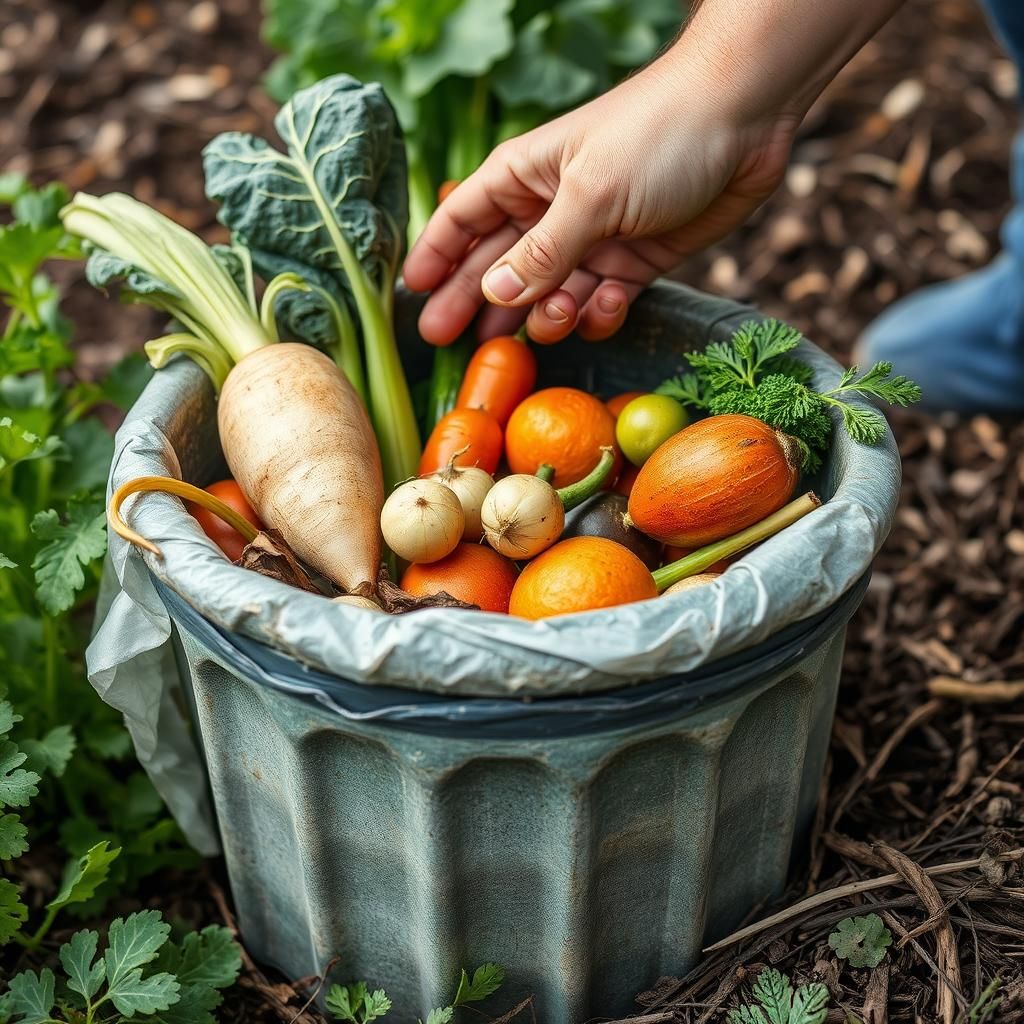
Composting is a natural and sustainable way to recycle garden waste and kitchen scraps, enriching your soil while reducing landfill waste. However, not all vegetables can be safely composted. Understanding which vegetables to avoid is crucial for successful compost management. Certain types of vegetables can attract pests, create unpleasant odors, or even introduce harmful pathogens to your compost pile. This essential guide will help you identify which vegetables should be kept out of your compost, ensuring a healthier and more effective composting process. With the right knowledge, you can enhance your compost and promote a thriving garden ecosystem.
What Vegetables Should Not Be Compostedin?
When composting, it’s crucial to know which vegetables are unsuitable for the process to maintain the health of the compost and avoid attracting pests. Certain vegetables, particularly those that are high in oil or acidity, such as onions, garlic, and citrus peels, can create an imbalance in the compost pile. Additionally, diseased or infested vegetables may spread pathogens in your compost, while starchy vegetables like potatoes and corn can lead to a slimy texture and odor, making them less desirable for composting. To ensure the best results, it's important to avoid these specific types of vegetables in your composting efforts.
1. Onions and Garlic
Onions and garlic contain high levels of sulfur and can produce a strong odor, which might deter beneficial organisms in the compost. Their potential to attract pests can also lead to complications. Furthermore, these vegetables can impact the pH balance of the compost, resulting in an unhealthy compost environment.
2. Citrus Peels
While citrus peels are often thrown in the compost bin, they are highly acidic, which can disrupt the microbial activity necessary for effective composting. This high acidity can slow down the composting process, making it less efficient and potentially harming the overall composition of the pile.
3. Potatoes and Starchy Vegetables
Starchy vegetables, such as potatoes and corn, tend to retain moisture and can become slimy when composted. This moisture retention can lead to poor aeration in the compost pile, resulting in foul odors and an overall unhealthy composting environment. Instead of composting, consider using these food scraps in other methods such as animal feed.
4. Cooked Vegetables
Cooked vegetables, particularly those that contain oils or sauces, can introduce fats and unwanted bacteria into your compost. The presence of these elements can lead to mold growth and attract pests, making your compost bin less appealing and effective.
5. Diseased or Infested Vegetables
It's essential to avoid adding any vegetables that are diseased or infested with pests to your compost. These materials can spread diseases and attract unwanted organisms into your compost system, compromising the integrity of the compost. It's better to dispose of such items in the trash or yard waste instead.
| Vegetable | Reason Not to Compost |
|---|---|
| Onions | High sulfur content, strong odor |
| Garlic | Same as onions; also can attract pests |
| Citrus Peels | High acidity can disrupt microbiome |
| Potatoes | Can become slimy and retain moisture |
| Cooked Vegetables | Introduce fats and unwanted bacteria |
| Diseased Vegetables | Can spread diseases in compost |
What vegetables should you not compost?
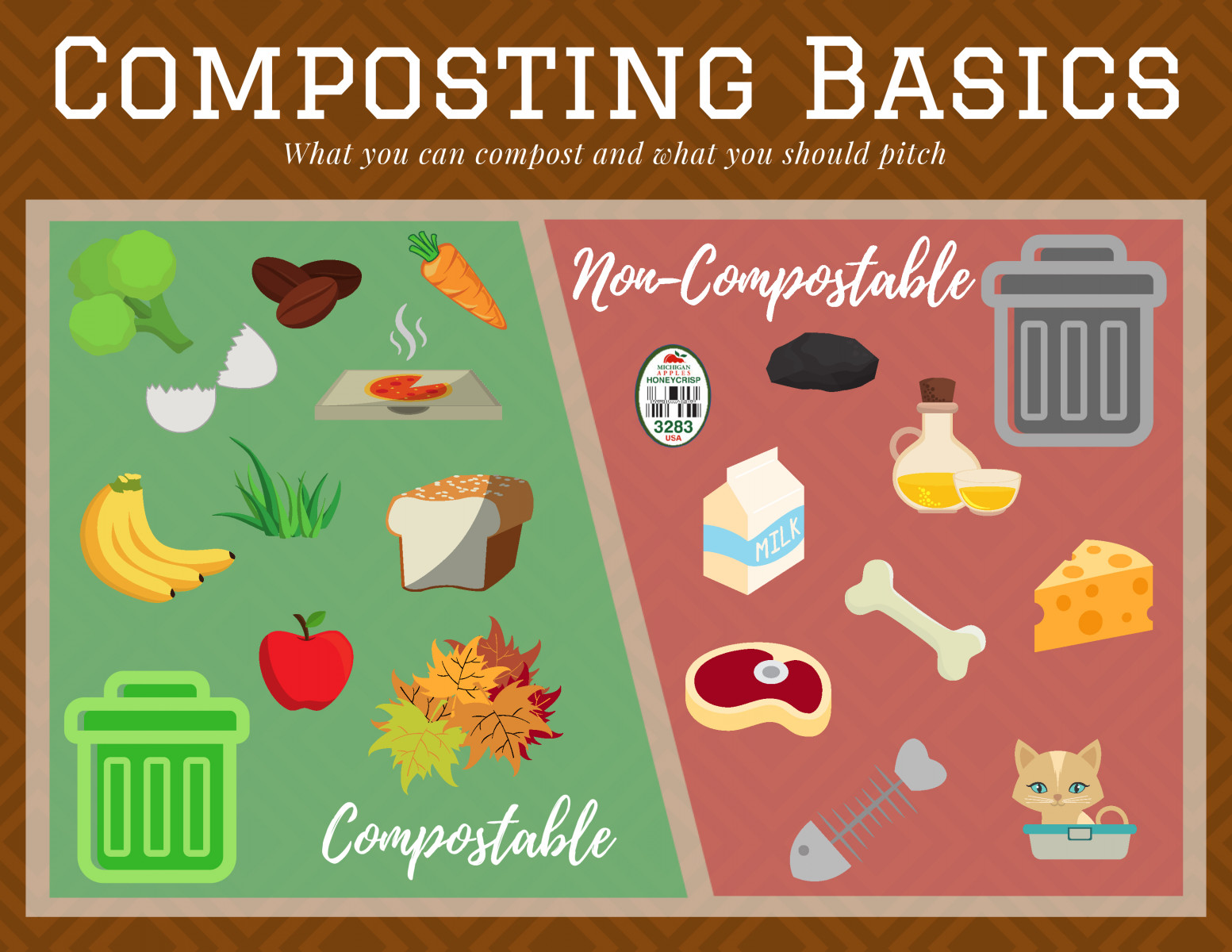
1. Vegetables that can attract pests
Certain vegetables are known to attract a variety of pests and insects, which can create problems for your compost pile and garden. Some of these vegetables include:
- Onions - They release strong odors that can attract pests like flies.
- Garlic - Similar to onions, garlic can deter beneficial insects while attracting unwanted ones.
- Corn - The moisture from corn can attract rodents and other pests.
2. Vegetables treated with chemicals
Vegetables that have been treated with pesticides or chemical fertilizers can contaminate your compost. It's crucial to avoid these to ensure a healthy composting process. Some examples include:
See also: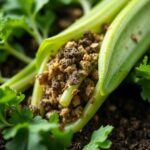
- Conventionally grown potatoes - Often treated with chemicals like chlorpropham.
- Tomatoes - If grown with pesticides, they can introduce harmful substances into your compost.
- Cucumbers - These can harbor traces of chemicals used for pest control.
3. Starchy vegetables
Starchy vegetables can lead to an imbalance in your compost. They can break down slowly and might cause issues during the composting process. Avoid composting:
- Potatoes - Their high starch content can result in a slimy compost pile.
- Sweet potatoes - They also contain significant starch and can slow down decomposition.
- Squash - Some varieties are very starchy and contribute to imbalances in compost.
4. Cruciferous vegetables
Cruciferous vegetables can cause odors during composting due to their high sulfur content. They’re likely to rupture and produce unpleasant smells. Avoid the following:
- Cabbage - Known for its strong smell when decomposing.
- Broccoli - Has a strong odor during composting due to its sulfur compounds.
- Brussels sprouts - Similar issues with odor can arise if composted in large quantities.
5. Vegetable peels and skins
While peels and skins might seem harmless, some can also be problematic in composting. They might take longer to break down and contribute to an unbalanced compost mix. Consider avoiding:
- Citrus peels - They can acidify your compost and deter worms.
- Banana peels - While they decompose, they can attract pests if not managed properly.
- Potato skins - They contain solanine which can inhibit the composting process.
Can all vegetables be composted?
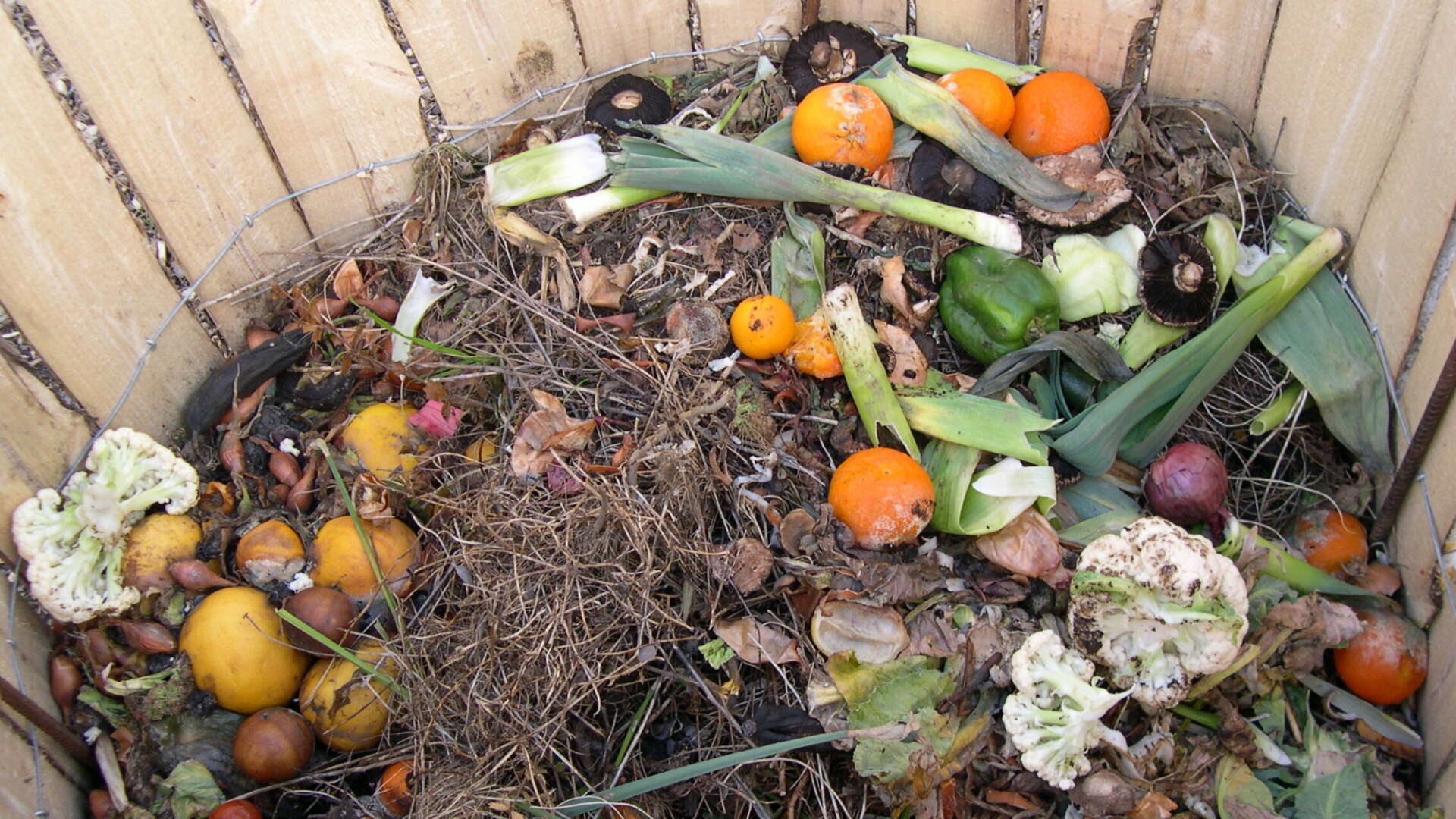
It is a common question among gardening enthusiasts and environmentally conscious individuals: The answer is not a simple yes or no. While many vegetables can indeed be composted, there are certain types that should be avoided or treated with caution. Composting is an excellent way to recycle organic matter and enrich soil, but it’s essential to know which vegetable scraps are suitable for the compost pile.
Understanding Compostable Vegetables
Composting involves breaking down organic materials into nutrient-rich soil. Most vegetable scraps can be composted, particularly those that are high in nitrogen, which is essential for decomposition.
- Leafy Greens: Lettuce, spinach, and other leafy greens are excellent additions to compost because they break down quickly and provide essential nutrients.
- Root Vegetables: Carrot and beet tops can also be composted, although they may take longer to decompose if not chopped.
- Fruiting Vegetables: Peels and scraps from tomatoes, cucumbers, and peppers can add valuable nutrients to the compost.
Vegetables to Avoid in Compost
While many vegetables are suitable for composting, some should be avoided due to potential complications. These include:
- Onions and Garlic: These can cause strong odors and attract pests, making them less desirable for composting.
- Citrus Peels: High acidity levels in citrus can harm beneficial microbes in the compost pile.
- Stale or Moldy Vegetables: Avoid adding these as they can introduce pathogens into your compost.
How to Prepare Vegetables for Composting
Proper preparation of vegetable scraps can enhance their composting process. Here's how to do it effectively:
- Chop Scraps: Smaller pieces decompose faster. Chop larger scraps into smaller bits to speed up the process.
- Maintain Balance: Mix green (nitrogen-rich) vegetable scraps with brown (carbon-rich) materials like dried leaves.
- Monitor Moisture: Ensure a proper moisture level in your compost since vegetables add water. Adjust as necessary to avoid sogginess.
The Benefits of Composting Vegetable Scraps
Composting vegetable scraps offers numerous environmental and gardening benefits, including:
- Nutrient-Rich Soil: Compost enriches soil with vital nutrients, promoting healthy plant growth.
- Waste Reduction: Composting reduces waste sent to landfills, contributing to a more sustainable lifestyle.
- Improved Soil Structure: Organic compost enhances soil structure, aiding in water retention and aeration.
Composting Techniques for Vegetable Waste
There are various methods to compost vegetable waste effectively. Exploring different techniques can help you find the best fit for your gardening needs.
See also: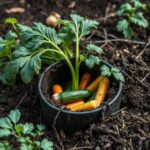
- Bokashi Composting: A fermentation method that can compost all types of vegetable matter, including kitchen scraps.
- Hot Composting: This method requires turning the pile regularly to maintain high temperatures that kill pathogens and weed seeds.
- Cold Composting: A slower process that allows for natural decomposition without needing frequent turning.
Can I put rotten vegetables in compost?

Yes, you can put rotten vegetables in compost. In fact, they can be quite beneficial for your compost pile. Composting is a natural process that involves the decomposition of organic matter, and rotten vegetables contribute to this process by providing essential nutrients and helping to create a rich compost. However, there are some considerations to keep in mind when adding them to your compost.
Benefits of Adding Rotten Vegetables to Compost
Including rotten vegetables in your compost can provide several advantages:
- Nutrient-Rich Material: Rotten vegetables contain a high concentration of nutrients that enrich the compost.
- Microbial Activity: As vegetables decompose, they foster microbial activity, which is crucial for breaking down organic matter.
- Moisture Retention: They help retain moisture in the compost pile, balancing the carbon-to-nitrogen ratio.
Potential Issues with Rotten Vegetables
While there are benefits, there are also some potential issues to consider:
- Odor Problems: If too many rotten vegetables are added, they can create unpleasant odors.
- Pest Attraction: Certain types of rotten vegetables may attract pests or rodents to your compost pile.
- Imbalance: An excess of rotten material can create an imbalance in the compost pile, leading to anaerobic conditions.
How to Properly Add Rotten Vegetables to Compost
To ensure the optimal use of rotten vegetables, it's important to follow some guidelines:
- Chop Them Up: Breaking them into smaller pieces can speed up the decomposition process.
- Mix With Other Materials: Combine them with browner materials (like dry leaves or cardboard) to maintain a healthy balance.
- Layering: Layer rotten vegetables with other organic matter to promote airflow and reduce odor.
Types of Vegetables to Avoid in Compost
Not all rotten vegetables are suitable for composting:
- Plants Gone to Seed: Adding vegetables that have gone to seed can introduce unwanted weeds.
- Oily or Greasy Foods: These can lead to foul odors and attract pests.
- Diseased Vegetables: Avoid composting vegetables with disease to prevent spreading pathogens.
Composting Rotten Vegetables vs. Fresh Vegetables
Understanding the differences between composting rotten and fresh vegetables can enhance your composting efforts:
- Decomposition Rate: Rotten vegetables decompose quicker due to their already broken-down state.
- Nutrients: Rotten vegetables may offer a more concentrated source of nutrients.
- Carbon-Nitrogen Ratio: Fresh vegetables can balance the carbon-nitrogen ratio better when mixed with browner materials.
Questions from Our Readers
What vegetables should not be composted?
Certain vegetables can lead to composting issues. For instance, onions, garlic, and potatoes may attract pests and produce unwanted odors. Additionally, citrus peels and cruciferous vegetables like broccoli can create acidity and may be slow to decompose.
Are cooked vegetables compostable?
Cooked vegetables are generally not recommended for composting. They can contain fats, oils, or seasonings that disrupt the composting process and may attract pests. Instead, it's better to use raw vegetable scraps for your compost pile.
Can I compost vegetable scraps from diseased plants?
No, it's best to avoid composting vegetable scraps from diseased plants, as they can introduce pathogens into your compost pile. This can compromise the health of your future plants when you use the compost in your garden.
See also: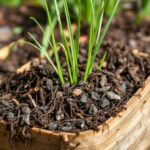
What vegetables break down slowly in compost?
Some vegetables, like corn cobs and brassicas (e.g., kale, cabbage), may take longer to decompose in a compost pile. Their tougher structures can slow the breakdown process, so it's advisable to chop them into smaller pieces to speed up decomposition.

If you want to read more articles like What Vegetables Cannot Be Composted? Essential Guide for Your Composting Success, we recommend you check out our Compost category.
Leave a Reply
Related Articles